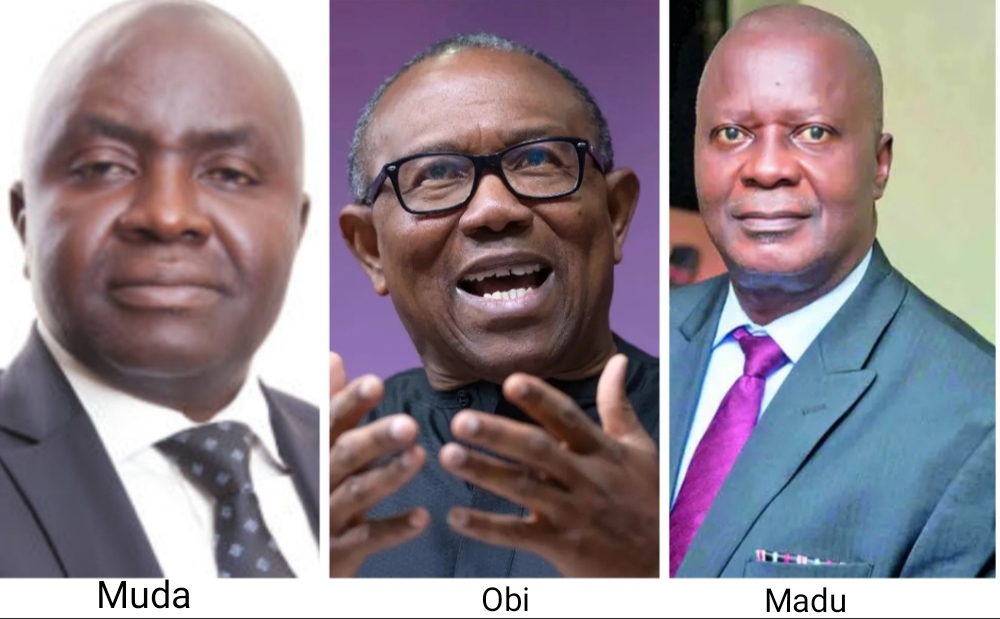By Babajide Okeowo

“We’ll treat fairly, respectfully and with care, meeting all applicable legal and consultation requirements” those were the sugar-coated, subtle but damning verdicts that employees of GlaxoSmithKline Consumer Nigeria Plc were subjected to after they were unceremoniously dumped into the unemployment market after the company announced its departure from Nigeria after 52 years and N25.382 billion in revenue in 2022 a few weeks ago.

In the last 10 years, no fewer than 10 blue-chip companies including ShopRite, Procter & Gamble, Surest Foam Limited, Mufex, Framan Industries, MZM Continental, Nipol Industries, Moak Industries, Deli Foods, and Stone Industries, among others, have announced the total or partial shut down of their operations in Nigeria throwing thousands of Nigerians who work in these establishments into dilemma, pain and anguish.
GlaxoSmithKline (GSK) became the latest multinational to announce its departure from the country sparking fresh concerns about rising unemployment.

In a press statement signed by the Company Secretary, Frederick Ichekwai, GSK Consumer Nigeria Plc, noted for its wide array of prescription medicines and vaccines that many Nigerians have become accustomed to announced that it would be closing down its operations in Nigeria.
“In our published Q2 results, we disclosed that the GSK UK Group has informed GlaxoSmithKline Consumer Nigeria Plc of its strategic intent to cease commercialisation of its prescription medicines and vaccines in Nigeria through the GSK local operating companies and transition to a third-party direct distribution model for its pharmaceutical products.”
Here comes the worrying part, The company said it will be briefing its employees, whom it promised to “Treat fairly, respectfully and with care, meeting all applicable legal and consultation requirements”.
Checks by MMS Plus show that GSK employs between 1,000 to 5, 000 people directly nationwide while about 250, 000 others including suppliers, truck drivers, pharmacies, and distributors earn their living indirectly with the company.
Nigeria has been bludgeoned by massive unemployment statistics that have left many worried. According to data from Klynveld Peat Marwick Goerdeler, KPMG Nigeria, one of the world’s leading accounting firms warned that the unemployment figure is expected to hit about 41 per cent in 2023 due to the continuing inflow of job seekers into the job market.
The multinational consulting firm, in a newly released report tagged ‘KPMG Global Economy Outlook report, H1 2023,’ said unemployment will continue to be a challenge due to the slower-than-required economic growth and the inability of the economy to absorb the 4-5 million new entrants into the Nigerian job market every year.
“Unemployment is expected to continue to be a major challenge in 2023 due to the limited investment by the private sector, low industrialisation and slower than required economic growth and consequently the inability of the economy to absorb the 4-5 million new entrants into the Nigerian job market every year. Little wonder the exit of GSK and other multinationals has continued to elicit concerns from many quarters.
Speaking on this issue in an exclusive chat with MMS Plus, Dr Obiora Madu, Chairman/CEO Multimix Group and a Consultant to Nigeria Export Promotion Council (NEPC) warned that the issues of foreign exchange volatility, lack of electricity, and a myriad of other challenges will continue to force many multinationals out of Nigeria and throwing many into the unemployment market.
“It didn’t start with GSK and if care is not taken, it won’t end with GSK. A few years ago, I had the privilege of discussing the MD of Michelin Tyres in Port Harcourt, when we were conducting research on the impact of the Export Expansion Grant, the man showed me a paper containing the cost of diesel. He said in some of his factories, his machines are not connected to the national grid because of the sensitivity of those machines.
And what he told me was, look at my diesel costs. And he said, if nothing happens, the end is in sight. Those were his exact words.
And exactly about four years or so, or five years, the end indeed came and they left. After they left, Dunlop followed. But Michelin is still in Nigeria, importing tires and selling them. They have also joined the foreign exchange madness. So that GSK is leaving, for me, it’s not news. It’s not news at all” he disclosed.
Also decrying the impact that the exit of the multinational will have on Nigeria’s unemployment index, the presidential candidate of the Labour Party in the 2023 election, Peter Obi lamented that the company’s reason for leaving Nigeria is even more disheartening as they no longer perceive a prospect for the country as a business environment that would be anchored on productivity.
According to him, these are some of the consequences of the cumulative poor management of the country’s economy.
“As a result, millions are losing their jobs and our poverty index is worsening, even though we’re already being perceived as the world’s poverty capital.
“The multinationals that are leaving our country have not only created jobs but have created immeasurable training that contributed immensely to our human capital development over the years.
“Now they are leaving our shores one after the other. GSK which has a manufacturing facility in Agbara, Ogun State on over 25 hectares of land had directly employed over 400 highly technical workers like pharmacists, microbiologists, biochemists, chemists, dentists, doctors etc, and also employed over 1000 other staff.
“It indirectly provided jobs and business opportunities for thousands of Nigerians across the nation. They are now leaving all these behind, and pushing more people back into unemployment” a post he put up X, the social media platform formerly known as Twitter read in part.
Similarly, Adebisi Olanrewaju Bakare, the National Coordinator of Pragmatic Shareholders Association expressed her unhappiness at the impact the exit would have on unemployment in the country.
“We are not happy about it. We feel very bad. But when you look at the challenges the company is also going through, we know we can’t force them to stay. Shortage of forex is really affecting their business even though the problem is not peculiar to them.
Our youths and elderly people working with them will have to leave their jobs. Jobs are scarce now. Their decision to leave Nigeria will add to unemployment in the country” she lamented.
On his part, the Director of the Centre for the Promotion of Private Enterprise (CPPE), Dr Muda Yusuf pointed an accusing finger at the Central Bank of Nigeria (CBN) for the forex issue that is part of the reasons for the multinationals’ exit.
Hear him “The revaluation of foreign exchange liabilities amid the reforms in the forex market would predictably result in the current outcomes for companies with significant foreign exchange obligations.
“It is a question of the crystallisation of exchange rate risk. It is quite predictable. Using an exchange rate of N460 to the dollar to value these forex exposures over the past few years was purely academic. The reality is what is unfolding now” he retorted.
Madu proffers the following solution to the challenges. “The truth is, we know what the challenges are. What the Michelin guy complained about was power. I think the manufacturing companies who are here are also complaining about the issue of power. Resolving the power issue should be paramount to this administration, none of this is rocket science.
They are all doable. If you have power in this country, you will be shocked at the transformation that will take place. So I think power is behind most of those things.
Apart from that, if your country is corruption-ridden, some big international global corporations will not even want to be associated with you, apart from all the infrastructural challenges.
We should also stop demarketing ourselves, I heard someone say recently that we are in a mess. Someone who shouldn’t say anything like that. So, if we keep constantly demarketing ourselves, these things speak volumes internationally.
So, there’s a lot to do. We need to first of all project the whole lot of good things that are happening in Nigeria. That’s the truth. But we focus more on the bad things. The bad things, yes.
Let us first of all position ourselves, remarket ourselves and position ourselves. Then let us try to provide those basic things; provide power, and improve infrastructure.
You need rail, with rail, you can move quite a lot of cargo without stress. We need to repair the roads. We need to use inland waterways. So, everything we need is here, it’s up to us. Again, it’s about the political will.
Obi added that creating an environment that enables multinationals to invest in our country is key to achieving greatness.
“I have consistently maintained that in turning our nation around, we must move the economy from consumption to production, including encouraging and supporting local and foreign investments, like GSK, in the country.
“The creation of an environment that creates and sustains multinationals to invest in our country is key to our dream of greatness. In the new Nigeria that we seek to create, the emphasis on production will encourage investors to stay and expand on our shores.”
 MMS PLUS NG – Maritime, Aviation, Business, Oil and Gas News Online Newspaper with coverage in Maritime, Oil and Gas, Aviation, Power and Energy as well as Financial News
MMS PLUS NG – Maritime, Aviation, Business, Oil and Gas News Online Newspaper with coverage in Maritime, Oil and Gas, Aviation, Power and Energy as well as Financial News









